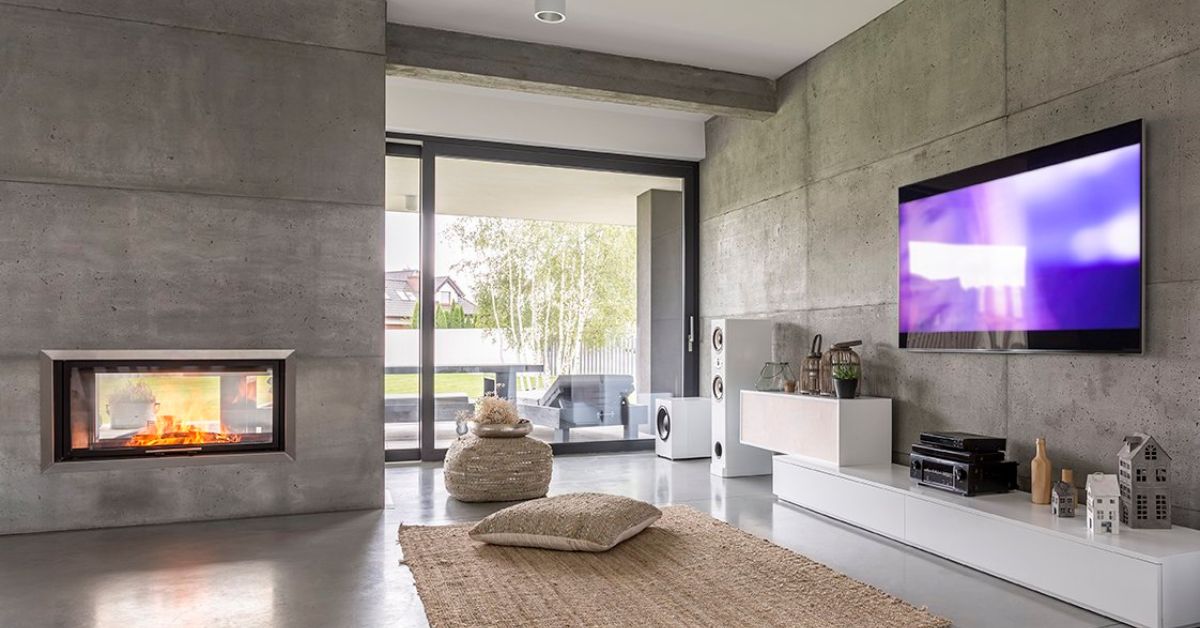RIYADH, SAUDI ARABIA — In recent years, smart homes have transformed from a futuristic concept to a tangible reality, revolutionizing the way people live and interact with their living spaces. Saudi Arabia, with its rapid technological advancements and ambitious Vision 2030 goals, has emerged as a promising market for smart home technologies.
The Saudi smart homes market is rapidly expanding, driven by factors such as the growing affluence of the Saudi population, the government’s emphasis on digitization, and the increasing popularity of smart home devices. According to Statista, the Saudi Smart Home market is expected to grow by 12.76% (2022-2027), resulting in a market volume of US$786.30m in 2027.
The Saudi government is playing a pivotal role in the growth of the smart home market, launching initiatives such as the Smart Cities Program, the National Transformation Program 2020, the King Abdullah Economic City (KAEC), and the Riyadh Metro. These initiatives are increasing demand for smart homes, as residents seek ways to automate and make their homes more energy-efficient.
Key segments in the Saudi Arabian smart homes market include home automation, security systems, energy management, and entertainment solutions. These technologies provide residents with greater control over various aspects of their homes, including lighting, climate control, security, and entertainment systems.
All about Saudi smart homes market * The Saudi Smart Home market is expected to grow by 12.76% from 2022 to 2027, reaching a market volume of US$786.30 million in 2027. * The Saudi government has launched initiatives such as the Smart Cities Program, the National Transformation Program 2020, the King Abdullah Economic City (KAEC), and the Riyadh Metro to promote smart home adoption. * Key segments in the Saudi smart homes market include home automation, security systems, energy management, and entertainment solutions. * The growing popularity of IoT devices, such as smart thermostats, smart locks, and smart lights, is driving the growth of the Saudi smart homes market. * Extreme temperatures in Saudi Arabia make smart homes an attractive option for efficiently regulating indoor temperatures and achieving significant energy savings. * Security challenges in recent years have fueled demand for smart home security systems in Saudi Arabia. * Saudi Arabia's Vision 2030 aims to diversify the economy and reduce its dependence on oil, providing a conducive environment for the growth of the smart homes market. * Rapid urbanization and the younger population's preference for connected lifestyles fuel the demand for smart home technologies in Saudi Arabia. * The Saudi government's promotion of energy efficiency and sustainability aligns well with smart home technologies that allow users to monitor and control energy consumption. * The widespread adoption of smartphones and high-speed internet creates a foundation for the proliferation of smart devices within homes in Saudi Arabia. * Initial cost, security and privacy concerns, and consumer awareness are challenges to overcome for widespread adoption of smart home technologies in Saudi Arabia. * AI and IoT advancements are expected to result in more advanced and intuitive smart home systems in the future. * Government initiatives like the NIDLP and the Smart Cities initiative will help accelerate the growth of the smart home market in Saudi Arabia. * The Saudi smart homes market is on the rise, thanks to government support, technological advancement, and shifting consumer preferences, playing an important role in shaping the country's future urban landscape.
The growing popularity of IoT devices is also driving the growth of the Saudi smart homes market. Smart thermostats, smart locks, and smart lights are becoming more affordable and accessible, making it easier for Saudis to adopt smart homes.
Extreme temperatures in Saudi Arabia, particularly during the summer months, make smart homes an attractive option for efficiently regulating indoor temperatures and achieving significant energy savings. Additionally, security challenges in recent years have fueled demand for smart home security systems.
Drivers of Growth
Vision 2030 and Technological Adoption: Saudi Arabia’s Vision 2030 aims to diversify the economy and reduce its dependence on oil. Embracing technology and innovation is a crucial aspect of this vision, providing a conducive environment for the growth of the smart homes market.
Urbanization and Lifestyle Changes: Rapid urbanization and the younger population’s preference for connected lifestyles fuel the demand for smart home technologies.
Energy Efficiency and Sustainability: The Saudi government’s promotion of energy efficiency and sustainability aligns well with smart home technologies that allow users to monitor and control energy consumption.
Increased Connectivity: The widespread adoption of smartphones and high-speed internet creates a foundation for the proliferation of smart devices within homes.
Challenges to overcome

Initial Cost: The upfront investment required for smart home technologies can be a deterrent for some consumers, despite the long-term benefits.
Security and Privacy: Concerns about data security and privacy are paramount, as smart homes involve the collection and transmission of personal data. Robust cybersecurity measures are crucial.
Consumer Awareness: Educating the public about the potential benefits and functionalities of smart home technologies could accelerate their adoption.
The future of the Saudi smart homes market appears bright, with the adoption of smart home solutions expected to increase as technology becomes more affordable and consumer awareness grows. AI and IoT advancements will likely result in more advanced and intuitive smart home systems.
Government initiatives like the NIDLP and the Smart Cities initiative will help accelerate the growth of the smart home market, creating an environment favorable to smart home technology providers.
The Saudi smart homes market is on the rise, thanks to a confluence of favorable factors such as government support, technological advancement, and shifting consumer preferences. As Saudi Arabia advances toward its Vision 2030 goals, the smart homes sector is poised to play an important role in shaping the country’s future urban landscape.








